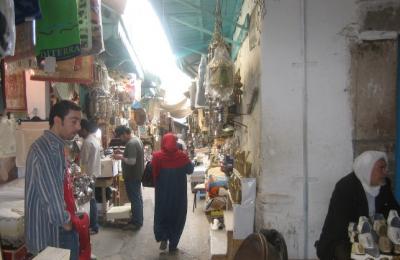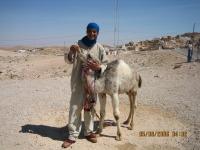By Anna Mirjam Kaber Translated by Alliki Arro
By 1956 a program for cultivating virgin lands had been put into effect in Russia. I saw this as a chance to take an interesting, adventurous trip, and to earn some money. In the following year, just before my last year at the Institute, I was ready to go. The train was to go from the Kopli freight station. After a noisy ceremony and going down a path lined with flags and slogans into the cars, my excitement at going on a trip was dampened at first by a curious feeling. I remember it very well. The train consisted of the cattle cars already so familiar to me - the cars had double bunks at each end... Our crew was placed in a collective farm village on the Aiat River in northern Kazhakstan. There were surprisingly few Kazakhs among the villagers. But there were Russians, Volga Germans, Ukrainians, Tatars, even Poles. The native Kazakhs lived in remote villages on the steppes. Not to far away from us there was a Chechen village. At the time we had no idea where we had ended up, and the concept “Gulag” had not entered our consciousness. It was only a few years ago, when I was reading Aleksander Solzhenitsyn’s “Gulag archipelago” that I connected the place with the Gulag. Now I know, that even Estonians were released from there only a year before we came. Paroled prisoners hauled grain along the Tobyl- Kostanaj highway which went through our village. We had been strictly forbidden to ride on their trucks. But we did it anyway, even for long distances, without knowing who they were. And nothing terrible happened to any of us - contrary to the rationalizations that had been given to support the prohibition. There were dreadful stories circulating about the Chechens, and that’s why we tried to avoid their village. We had no way of knowing that in 1944 practically all the Chechens were deported from their lands - nearly 600,000 people. And we didn’t know either, that Gulag prisoners were constructing an ironworks and building a rail line in Rudnyi, the new city built on the steppes near our village. We went there more than once. We were carefree young students, and we had no inkling of what was going on around us. I returned to Estonia a “well-heeled” student, paid off my debts, and bought the first watch that I had ever had.
That same summer, before going to Kazakhstan, I visited mother and Eva in Russia. They were to-gether again, and now they were three - your first grandchild, Krista, had been born there. In Russia you could not give your child a non-Russian name, and that is why she is Kristiina on her documents. I had not seen mother for more than ten years, and I was really looking forward to this trip. Because they were living in a new place, and I could get lost, I promised not to set out from the station on my own. It turned out that Eva had arranged for me to be picked up at the station by a truck. The village was situated on the banks of a small river in the forest. It was a loggers’ village around which they cut timber. The logs were then floated down the river. The moment the truck emerged from the forest onto the plain leading to the village, I saw mother. She was standing on the road leading into the village. How long had she been standing there? How many times had she come out here? Mother’s hair had grown white with the years and her shoulders stooped. Tears welled up, but I manged to control myself - mother wasn’t crying. And try as I might, I cannot recall mother ever crying. Did she always manage to conceal her tears from her children, or had she cried so much, that she had no tears left?
They lived in one half of a little house - in one room and a kitchen. This was a great improvement over their previous living conditions. Food was not scarce any longer - Eva worked as a payroll clerk and mother earned some additional income from sewing and needlework. I returned from there with a sense of relief, because they had made definite plans to come to Estonia, even without a permit, if they had to.
And this came to pass. By the summer of 1958, mother, Eva and little Krista were back in Estonia. They were no longer considered exiles, but mother could not get a permit to reside in Estonia. She lived very quietly in a farmhouse in Harjumaa province, and when we finally obtained permission for her to live in Estonia, in 1966, it was given on the condition that she not live in her former home-town, Tallinn.
Far away in Russia, when we were losing hope of ever returning, I remember mother saying: “We must not die here.” She died in her birthplace and was buried next to her father and mother at the Kaarli cemetery.
(To be continued)
Letter to my Father (14)
Järjejutt
TRENDING




















